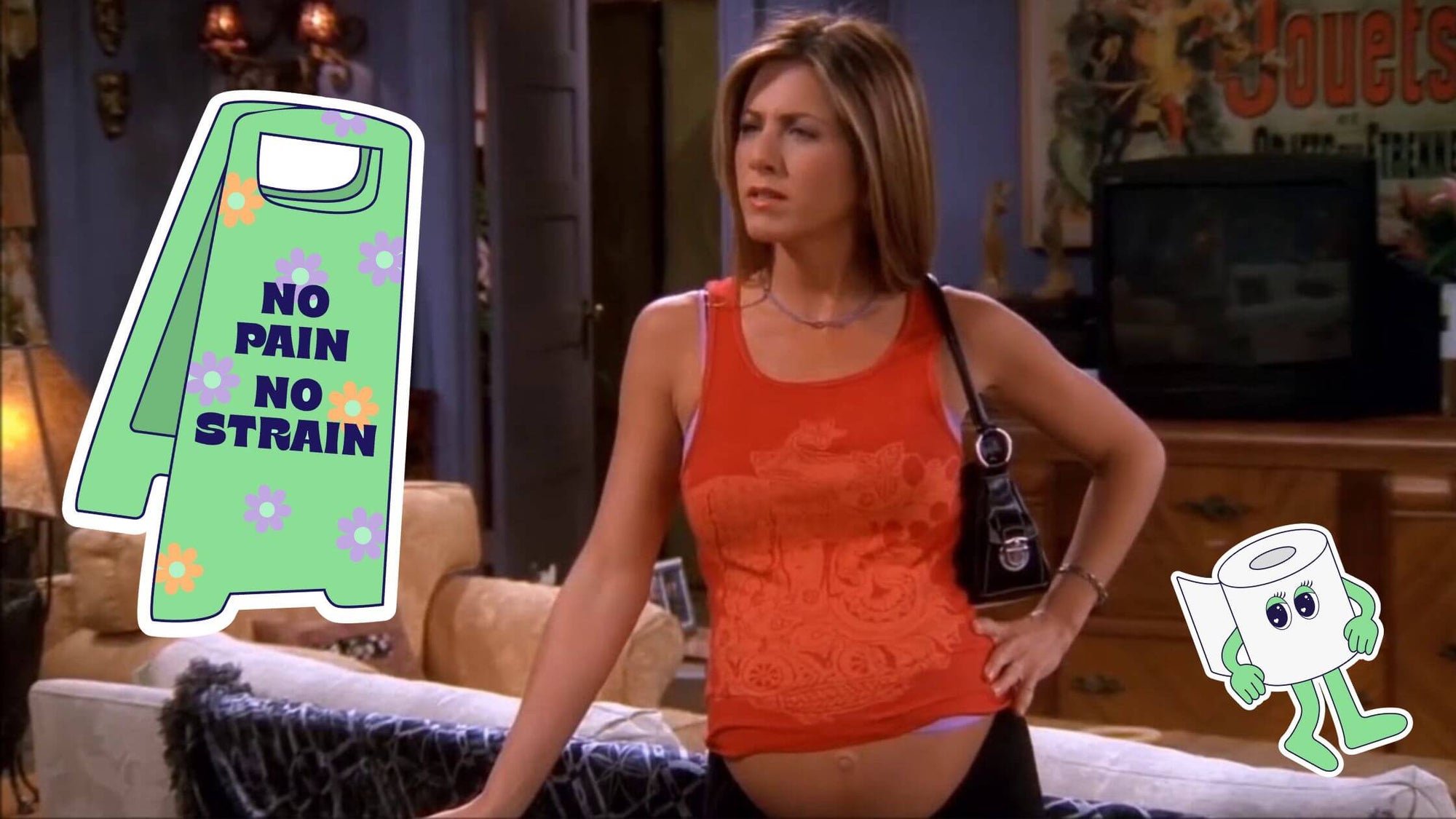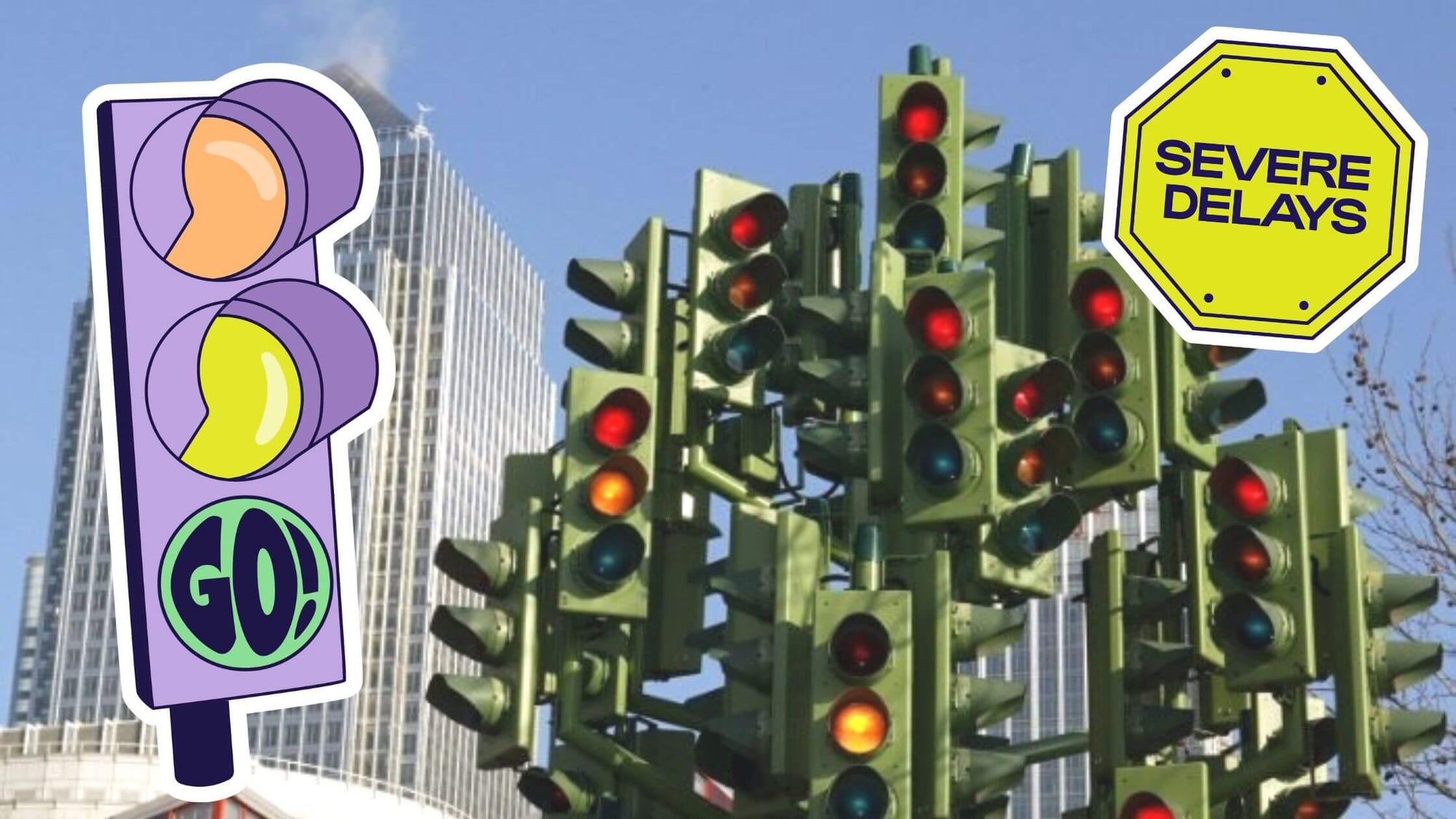Constipation is a common digestive issue that impacts almost everybody at one point in their lives. For some, it’s an ongoing issue that causes anxiety and other digestive symptoms like bloating and abdominal pain.
Thankfully, there are lots of things that you can do to beat constipation and reduce the risk of the same problem occurring in the future. Lots of natural remedies are highly effective for tackling bloating and constipation, and many of them work as long-term solutions to these digestive concerns.
Because there are so many different causes of constipation, you might need to try multiple remedies to see which works best for you. The best solution to your constipation ultimately depends on what is causing it and how severe it is.
In this article, we’ve got some top tips and remedies for relieving constipation naturally. Before we get into these top tips, let’s first cover what constipation is, how to know if you’re constipated, and what causes people to get constipated.
What Is Constipation?
Constipation refers to the inability to pass stools comfortably from your back passage. It causes a feeling of fullness and swelling in the abdomen due to a back-up in your colon, and these feelings only resolve once you’re able to go to the toilet.
To be constipated in a medical sense, you need to be passing fewer than three bowel movements per week. Note that if you’ve always been an infrequent toilet goer and three times a week is your normal, this doesn’t mean you are permanently constipated. However, if you usually have a bowel movement every day or every other day and suddenly, you’re only going twice a week, you’re probably constipated.
Other key criteria for diagnosing constipation include straining or experiencing pain when defecating, passing hard, lumpy stools, and a feeling of incomplete defecation. These symptoms only need to happen around 25% of the time to be classed as constipation.
How Do I Know if I’m Constipated?
We’ve mentioned the criteria for constipation above, but there are a few additional symptoms that indicate that you’re constipated. Learning about the symptoms of constipation enables you to identify when you’re constipated and take action to manage it or resolve it quickly.
Here are some key signs and symptoms of constipation to be aware of:
- Infrequent bowel movements (fewer than three times a week, assuming this isn’t your norm)
- Difficulty passing stools
- Passing hard, dry, lumpy stools
- Feeling as though you haven’t fully emptied your bowels when you go to the toilet
- Abdominal discomfort, pain, and cramping, especially just before defecation
- Bleeding from your back passage (usually caused by excessive straining when passing stools)
Although rectal bleeding is a common symptom of constipation and may be due to something as benign as pushing a bit too hard when you’re sitting on the toilet, it’s also a common symptom of more serious digestive health conditions.
If you are experiencing bleeding from your back passage, especially if it’s bright red blood that you’re seeing (either in the toilet bowl or on the tissue when you wipe), contact your doctor as soon as possible.
What Causes Constipation Long Term?
Constipation isn’t just caused by one thing on its own. Often, there are several factors that contribute to a blockage down below, and we’ve covered the most common causes of long-term constipation below.
1. Consuming a diet that is high in junk foods
Junk foods, packaged items, and takeaways are packed full of sodium to increase their palatability and shelf life. Whilst the body requires sodium to function optimally, too much sodium can disrupt the fluid balance inside and outside your cells and tissues.
Excessive sodium in your bloodstream causes water to move out of the cells and into the interstitial space. This leads to bloating and oedema. Consuming lots of sodium also causes you to become dehydrated, reducing the amount of water in your stool and causing it to harden.
A harder stool will be more difficult to pass, increasing the risk of constipation. This is exactly why you’re more likely to experience constipation and bloating on holiday.
2. Following a diet that is high in gas-producing foods
Constipation and diet are very closely linked. Although healthy and beneficial for you due to their high micronutrient and antioxidant content, many fruits and vegetables can increase your risk of digestive issues.
Your gut bacteria ferment certain fruits and veggies more than others. Fermentation is a process that causes the production of gas. More gas in your colon means more bloating and abdominal discomfort.
In particular, cruciferous vegetables like cabbage, broccoli, cauliflower, and kale are easily fermented, as are onions, garlic cloves, beans, and legumes. If you follow a vegetarian or vegan diet that is abundant in these foods, you might be more prone to digestive issues, which may include constipation.
3. Taking long-term medications or dealing with a chronic digestive issue
Some medications can interfere with digestion and may affect bowel regularity by disrupting the body’s ability to expel or retain fluids. If you’re taking any of the following medications in the long term, you might find that you’re prone to bloating, constipation, and abdominal cramps:
- Antacids
- Antibiotics
- Anticonvulsants
- Antidepressants
- Antiemetics
- Antihistamines
- Antipsychotics
- Blood pressure medications
- Calcium channel blockers
- Diuretics
- Iron supplements
- Non-steroidal anti-inflammatory drugs (NSAIDs)
- Opioids
Similarly, chronic digestive disorders can make you more likely to get constipated, especially if you don’t manage your condition effectively. Common digestive disorders that lead to constipation include irritable bowel syndrome (IBS), inflammatory bowel disease (IBD), and gastroesophageal reflux disease (GORD).
Eating disorders are another group of chronic health conditions that can make you more prone to constipation and digestive issues, particularly anorexia.
4. Hormonal imbalances
You might not even know that you have a hormonal imbalance and constipation isn’t always an associated symptom. If you’re a female, your reproductive hormones will fluctuate throughout the course of the month, which is completely normal and healthy.
However, your hormones might fluctuate a little too much or not at all, and some women have extremely low hormone levels altogether. Extreme fluctuations in the reproductive hormones, oestrogen and progesterone, or a lack of adequate amounts of these hormones, can disrupt digestion, cause water retention, and lead to constipation.
Reproductive health conditions, such as polycystic ovary syndrome (PCOS), hypothalamic amenorrhea, and endometriosis, are common causes of hormone imbalances. If you suspect you have one (or more) of these conditions, seek the help of a specialist doctor for an accurate diagnosis and necessary treatments.
5. Overconsumption of caffeine and alcohol
As delicious as coffee, energy drinks, and alcoholic drinks are, they can wreak havoc on your digestion. Whilst most people are fine with a cup of caffeinated coffee in the mornings and enjoy a glass of wine or two (or four) at the weekend, chronic excessive consumption of these drinks can lead to constipation.
Caffeine and alcohol are diuretics, meaning they increase your urinary output. Therefore, drinking a lot of these substances can lead to dehydration unless you make a conscious effort to drink more water when you’ve had a coffee, energy drink, or glass of alcohol.
Dehydration is a common contributor to constipation, which can lead to bloating and abdominal pain, as it causes food to move more slowly through your lower digestive tract and your stools to harden.
How Can I Prevent Constipation Long Term?
Preventing constipation requires a number of steps to improve your hydration, modify your diet appropriately, manage health conditions, and take beneficial supplements to support your gut health. Below, we’ve covered some top tips for preventing chronic constipation.
Modify your diet
There are a few things you can change in your diet to minimise the risk of constipation and keep your digestive tract (and gut bacteria) happy, including:
- Eating more fibre
- Lowering your salt intake by cutting out junk foods and pre-packaged foods
- Increasing your potassium intake
Fibre (specifically insoluble fibre) helps food to move more quickly through your digestive tract and bulks up your stools. It also fuels your gut bacteria and enables them to break down ingested food and produce beneficial compounds.
So, consuming more insoluble fibre can improve your bowel regularity and eliminate digestive symptoms like bloating, gas, and abdominal discomfort. You can find insoluble fibre in whole grains, beans, legumes, nuts, and seeds.
Limiting sodium and increasing potassium in your diet can help with fluid balance. Sodium draws water out of the cells and causes increased water retention, puffiness, and oedema (swelling). Potassium counteracts these effects and helps to keep water in your digestive tract to soften your stools and prevent constipation.
High-sodium foods to avoid include ready meals, crisps, pre-packaged snacks, frozen pizzas, and takeaways. Potassium-rich foods to eat more of include potatoes, avocados, kiwis, bananas, and dried fruit.
Take probiotics and digestive enzymes
Probiotic bacteria reside in your gut naturally, but there’s no harm in giving them a helping hand by taking a probiotic supplement. High-quality probiotic supplements contain billions of beneficial bacterial species, including Bifidobacterium, Enterococcus, and Lactobacillus, all of which help with breaking down food and producing nutrients in your gut.
Digestive enzymes, again, are produced naturally in your body. However, if you’re experiencing symptoms of poor digestion, you might benefit from a boost with a digestive enzyme supplement to increase your metabolic rate and reduce constipation and bloating.
Our supplement, A Dose For Bloating, contains two billion probiotic bacteria (a blend of Lactobacillus acidophilus and three strains of Bifidobacterium) and seven digestive enzymes for maximum gut health. Just one capsule a day is all you need to keep constipation at bay.
89% of our customers find relief within just two weeks of consistently taking A Dose For Bloating. It relieves gas, reduces discomfort, and enables you to live your life to the max without experiencing nasty digestive issues. Better yet, it’s suitable for those of you who suffer from irritable bowel syndrome and won’t worsen your symptoms.
Consider adding nutrient supplements to your diet
Micronutrients can impact digestion, especially the B vitamins, vitamin D, vitamin K2, calcium, iron, and magnesium. Supplementing with one or more of these nutrients could be the key to preventing long-term bloating and constipation for you.
Magnesium citrate has been shown to be particularly beneficial for digestion. This supplement has a laxative-like effect that stimulates the smooth muscle in your lower digestive tract (colon) to contract, pushing food along, and relieving constipation.
However, before you run to the store (or go online) and purchase every expensive vitamin and mineral supplement you can find, it’s best to speak to a dietician or nutritionist. There is such a thing as overdoing it with micronutrients, especially the fat-soluble vitamins. To avoid negative side effects and ensure maximum benefit from your supplements, get professional help from a qualified expert.
Incorporate more exercise into your weekly routine
This tip isn’t for those of you who already exercise every day or train hard in the gym four to five days a week. If this is you, it’s probably unhealthy, impractical, or even impossible to increase the amount of exercise you’re doing.
However, if you rarely exercise or your daily step count is in the low thousands, you might find great benefit in increasing your physical activity, not just for your health and fitness, but also for your digestion. Exercise is a lifestyle change that can stop bloating, constipation, and other digestive problems. It gets things moving through your intestines and increases toilet trip regularity.
Exercise also has beneficial effects on your mental health and can reduce stress. Since stress itself can be a cause of constipation and poor gut health, the psychological benefits of physical activity can’t be ignored.
Whether you enjoy walking your dog, taking dancing classes, playing sports with your friends, or lifting weights in the gym, find a form of exercise that you love and can see yourself enjoying in the long term. Remember that exercise should be fun and motivating, not tedious and boring!









